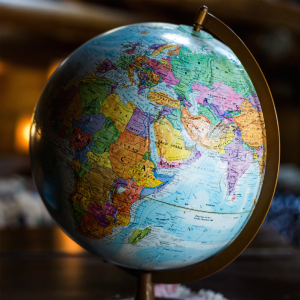

Around the world, IFRA works in partnership with policymakers, regulators and other stakeholders to develop fair and workable regulation that promotes the safe use and enjoyment of fragrance ingredients.
We seek to educate and inform these groups about our business and its needs, to listen to their views, and engage in constructive dialog.
Our four regions and our Regular and National Association members work to develop relations and partnerships with policymakers, regulators and other stakeholders at a local level, with global coordination - an industry speaking with one voice, but many accents.
See our policy library for position papers and policy documents »

IFRA has joined more than 20 other European and international trade associations in signing a cross-industry joint statement on Better Regulation.
The statement gives recommendations on further improving the European policy-making process, calling on the European Commission and other EU institutions to create EU laws based on evidence-based impact assessments and to allow sufficient time and resources to be allocated at all phases of the decision-making process.
The signatories also call for consultations to be conducted via a thorough process involving experts and input from all relevant stakeholders, and for key regulatory provisions, such as definitions and scope, to be agreed upon and clearly defined at a primary legislative stage.
The statement asks for the impact on innovation to be considered in all legislative initiatives and for EU legislation to be implemented and enforced in a harmonized way, safeguarding the EU single market.
IFRA and its partners at the International Organization of the Flavor Industry (IOFI) have published joint guidance on the Nagoya Protocol for companies in the fragrance and flavor industries.
The Guidance Document helps companies comply with regulations on Access and Benefit Sharing rules, with a focus on Brazil, the European Union, India, South Africa and Switzerland.
IFRA and IOFI also held a joint webinar to introduce the guidance.
The IFRA-IOFI Labelling Manual assigns hazard classifications and labelling guidance for fragrance and flavor materials following the United Nations rules.
Prepared by the IFRA-IOFI GHS Task Force, the Labelling Manual classifies fragrance and flavour materials following the criteria laid out in United Nations guidance documents.
A new edition of the Labelling Manual is produced in January each year.
For more than 20 years, IFRA has been a proud member of the Downstream Users of Chemicals Coordination group (DUCC).
DUCC is a joint platform of 11 European associations whose member companies use chemicals to formulate mixtures (as finished or intermediary products) for professional and industrial users as well as for consumers.
DUCC’s membership represents several critical sectors for the lives of European citizens ranging from fragrances to detergents, disinfectants, paints, printing ink and artists’ colors, cosmetics, aerosols, inks, toners, adhesives and sealants, pressroom chemicals, construction chemicals, lubricants, crop protection and chemical distributors industries.
Totalling more than 9,000 companies in Europe, the vast majority being small and medium-sized businesses, the calculated turnover of these 'downstream users of chemicals' is more than €215bn.
Find out more by watching the video below.
The fragrance industry is fully supportive of and engaged in the pursuit of alternatives to animal testing. We actively help to shape a future in which the safety of people and the protection of the environment can be assured without the use of animal testing.
We are committed to the use of reliable new approach methodologies (NAM) and to foster the technical know-how that would ideally result in the elimination of animal experiments.
The International Fragrance Association has given a cautious welcome to the publication of a new EU Chemicals Strategy for Sustainability (CSS), signaling its willingness to contribute to plans that support environmental protection and innovation and that are based on sound science.
As the voice of fragrance manufacturers and suppliers, IFRA is committed to consumer safety and to sustainable development across their many dimensions by continuously looking to create truly sustainable and innovative solutions.
Read our statement on MyNewsDesk »
IFRA has also joined a cross-industry call to the European Commission not to overhaul the European Union's chemical rules.
A letter to Commission President Ursula von der Leyen, coordinated by the European Chemical Industry Council (CEFIC) and co-signed by IFRA and 17 other industry associations, says that the development of the Chemical Strategy for Sustainability should not lead to a root-and-branch rethink of the EU's REACH chemicals legislation.
IFRA Europe is among the signatories of a joint letter to the European Commission on digital means and mandatory product information.
IFRA Europe signed the letter with a group of consumer-facing industry sectors, supported by retailers. The letter outlines the opportunities that digitalization can bring to the European Union's citizens and businesses and calls for further action and leadership from the European Commission to make Europe fit for the digital age.
The global fragrance industry is calling on governments to include factories manufacturing fragrance as ‘critical infrastructure’ or ‘essential business’ in combating the current coronavirus (COVID-19) pandemic, and therefore exempt these facilities from measures that would restrict access to employees and close operations.
The global fragrance industry, represented by The International Fragrance Association (IFRA), has issued a statement highlighting the needs being met by the industry during this pandemic, which cannot be done remotely, and which require the day-to-day presence of specialist personnel.